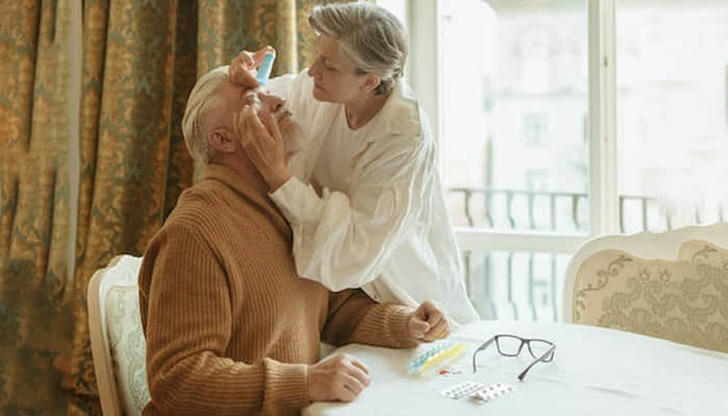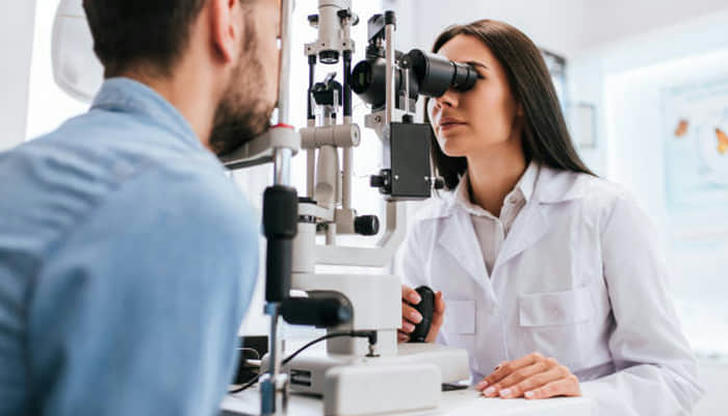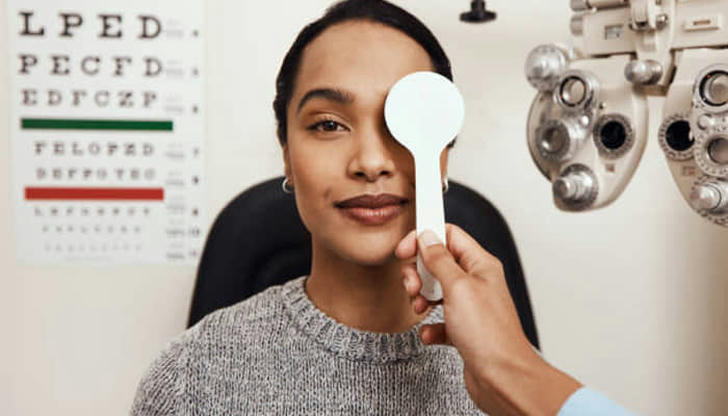Six Reasons Why Prioritizing Eye Care Is Important
Advertisement

Maintaining good eye health has a positive impact on our overall well-being. When we can see clearly and comfortably, we experience fewer visual distractions, eye strain, or headaches. This allows us to focus on our activities and enjoy them without discomfort or frustration. Good eye health contributes to a sense of well-being, contentment, and enjoyment of life's experiences.
In addition, our eyes connect us to the world and our loved ones. The ability to see the faces of our family and friends, appreciate the beauty of nature, and engage in visual forms of communication deepens our emotional connections and enriches our relationships. Here, we’d like to discover some importance of why people need to take care of their eyes.
Vision preservation

Our eyes play a crucial role in our ability to see and perceive the world around us. By prioritizing eye care, we can take steps to preserve our vision and prevent visual impairments or vision loss. Regular eye exams are essential as they enable early detection of any changes in our vision and identification of potential eye problems. This early intervention and treatment can help prevent further deterioration of our vision. In addition to regular check-ups, adopting healthy habits such as maintaining a balanced diet, engaging in regular exercise, avoiding smoking, and protecting our eyes from injury can all contribute to maintaining good vision and preserving our ability to see the world clearly.
Preventing eye conditions

There are several eye conditions that can develop over time and have a significant impact on our vision and overall eye health. For instance, cataracts involve the clouding of the lens inside the eye, leading to blurry vision. Glaucoma refers to a group of eye conditions that damage the optic nerve, resulting in vision loss. Macular degeneration affects the central part of the retina, leading to blurred or distorted central vision. Diabetic retinopathy is a complication of diabetes that affects the blood vessels in the retina. By taking proactive measures to protect our eyes, such as wearing appropriate eye protection during activities that pose a risk of eye injury and managing underlying health conditions like diabetes, we can reduce the risk of developing these eye conditions or slow down their progression. This proactive approach can help maintain our vision and preserve our eye health in the long run.
Digital eye strain

In today's digital age, many of us spend extended periods of time looking at screens, including those of computers, smartphones, and tablets. This prolonged screen time can lead to digital eye strain, also known as computer vision syndrome. Symptoms of digital eye strain may include dryness, eye fatigue, blurred vision, headaches, and neck or shoulder pain. To alleviate these symptoms, it is crucial to practice proper eye care. This includes following the 20-20-20 rule, which suggests taking a 20-second break every 20 minutes to focus on something 20 feet away. Making adjustments to screen settings such as brightness and contrast, maintaining proper posture while using digital devices, using appropriate lighting conditions, and using artificial tears to lubricate the eyes can all help reduce digital eye strain and promote healthier eyes during screen use.
UV protection

Prolonged exposure to ultraviolet (UV) radiation from the sun can be harmful to our eyes and increase the risk of various eye conditions. UV rays can contribute to the development of cataracts, which involve the clouding of the eye's natural lens, as well as macular degeneration, which affects the central part of the retina. To protect our eyes from the damaging effects of UV radiation, it is important to wear sunglasses that block 100% of UVA and UVB rays. Additionally, wearing wide-brimmed hats or seeking shade can provide further protection against UV exposure. These measures help reduce the risk of developing UV-related eye conditions and promote long-term eye health.
General health indicators

Regular eye exams not only play a crucial role in detecting eye-related conditions but also provide valuable insights into our overall health. During an eye examination, eye doctors can identify signs and symptoms of various systemic conditions, such as diabetes, high blood pressure, autoimmune disorders, and certain types of cancers. For instance, changes in blood vessels at the back of the eye can indicate hypertension, while specific eye abnormalities can suggest the presence of autoimmune disorders. Early detection of these conditions through routine eye care allows for timely medical intervention, leading to better overall health outcomes. By prioritizing regular eye exams, we can monitor our eye health and potentially identify underlying systemic conditions that may require further medical attention.
Quality of life

Good vision is vital for performing everyday activities and plays a significant role in maintaining a high quality of life. Clear vision is necessary for reading, writing, driving, working, and enjoying hobbies such as watching movies or playing sports. By taking care of our eyes, we can ensure optimal visual acuity, allowing us to engage fully in these activities without visual limitations or discomfort.
When our eyes are in good health, we can read books or articles effortlessly, write without straining to see the words clearly, and perform tasks that require visual accuracy with ease. Clear vision is particularly important for activities such as driving, where the ability to see the road, signs, and other vehicles is crucial for safety. Whether it's for work or leisure, having good vision enhances our ability to perform tasks efficiently and enjoyably.
In conclusion, prioritizing eye care is essential for maintaining a high quality of life. By ensuring good vision and eye health, we can engage fully in daily activities, enhance our independence and productivity, and experience an overall sense of well-being. Taking care of our eyes is an investment in our ability to live life to the fullest.



